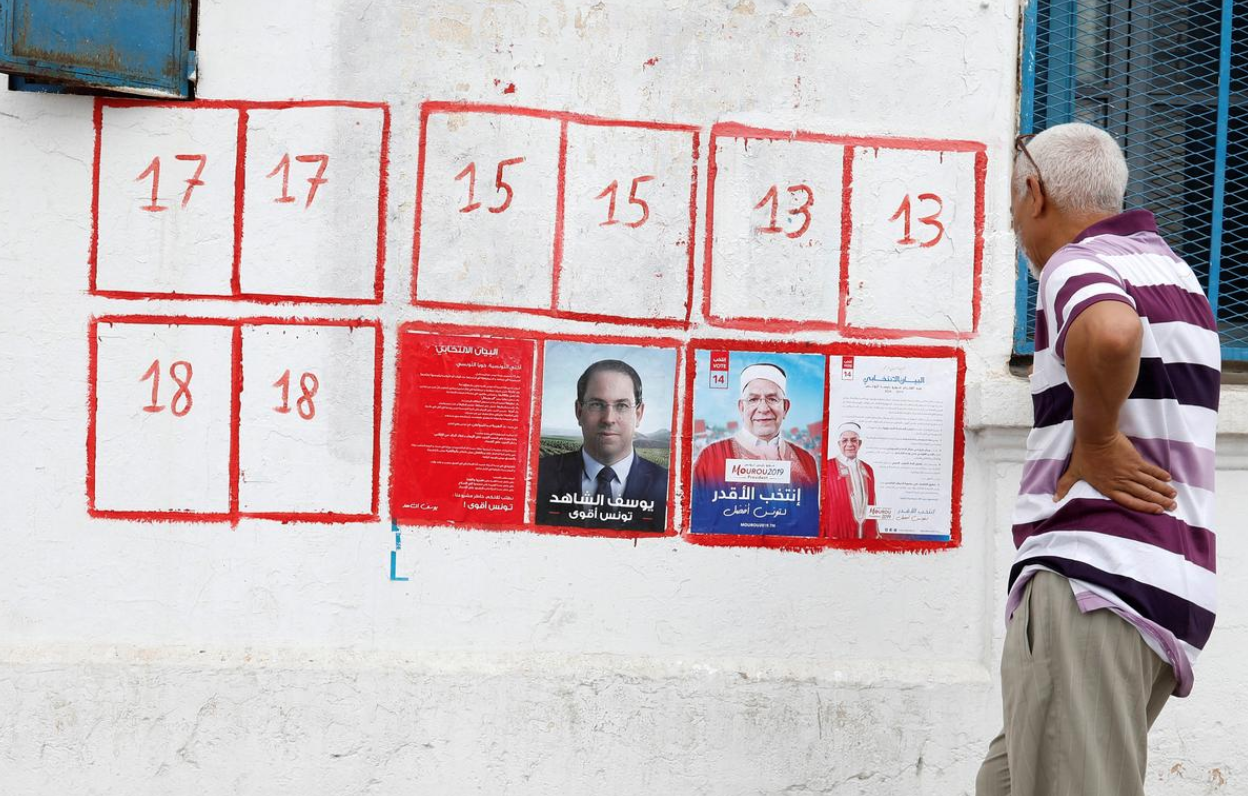
TUNIS (Reuters) – Tunisian presidential candidates began campaigning on Monday for the Sept. 15 election against a backdrop of economic troubles and a militant shooting that underlined the challenges facing the only democracy to emerge from the 2011 Arab uprisings.
Among the 24 men and two women running for election are the prime minister, a media magnate detained last month on suspicion of tax fraud and money laundering, and a candidate from a moderate Islamist party that was banned before the revolution.
The presidential election was called early because of the death in July of president Beji Caid Essebsi, the first democratically elected head of state after the popular uprising that overthrew veteran strongman Zine El-Abidine Ben Ali.
The president controls foreign and defense policy, governing alongside a prime minister chosen by parliament who has authority over domestic affairs.
Whoever ends up leading the country will face the challenge of a faltering economy and continued efforts to plug a large state deficit and public debt.
Prime Minister Youssef Chahed told Reuters last week that Tunisia was still under threat from militant groups including Islamic State four years after two attacks killed dozens of tourists, badly hurting Tunisia’s tourism industry.
State television on Monday reported the death of a police chief and three Islamist militants in a security operation near the Algerian border.
Meanwhile, unemployment has risen from 12% before the uprising to 15.2% now – rising to 30% in some cities.
Despite his continued detention, businessman Nabil Karoui, who owns the private Nesma television station, was kept on the final list of candidates that the electoral commission announced on Saturday. His political party says the charges are politically motivated.
Several candidates began their campaigns on the stroke of midnight, when the election season officially began, with Chahed meeting hundreds of supporters in the capital’s impoverished Kabarya district.
Other prominent candidates include former president Moncef Marzouki, former prime minister Mehdi Jomaa and Defence Minister Abdelkarim Zbidi.
Abdelfattah Mourou, vice president of Ennahda party, is the moderate Islamist party’s first candidate to become head of state after decades of repression before 2011.
“We want to succeed in order to change the lives of Tunisians for the better and to strengthen the democratic path,” Mourou said while sticking up election posters in Tunis.
Supporters of Karoui also began putting up photographs of him, defying the judiciary’s decision to arrest him and saying their campaign would begin with a large popular rally in the southern city of Gafsa later on Monday. The presidential vote, and a parliamentary election on Oct. 6, represent the third found of polls in which Tunisians have been able to vote freely since the 2011 uprising.
Reporting by Tarek Amara and Angus Mcdowall; Editing by Alison Williams


